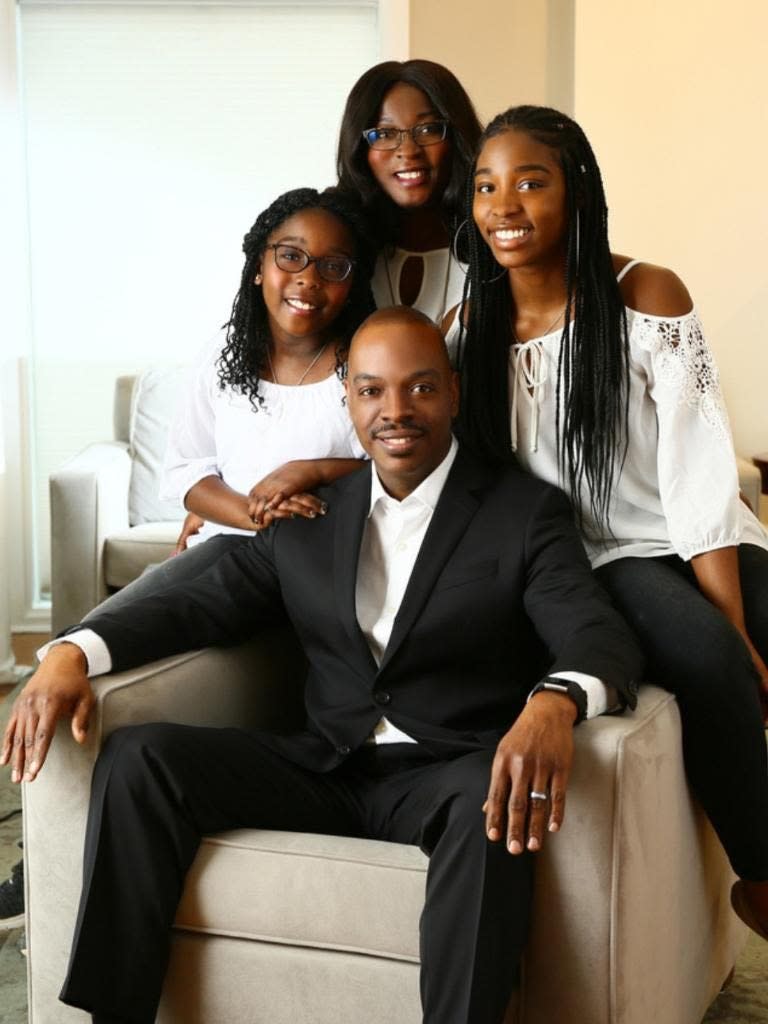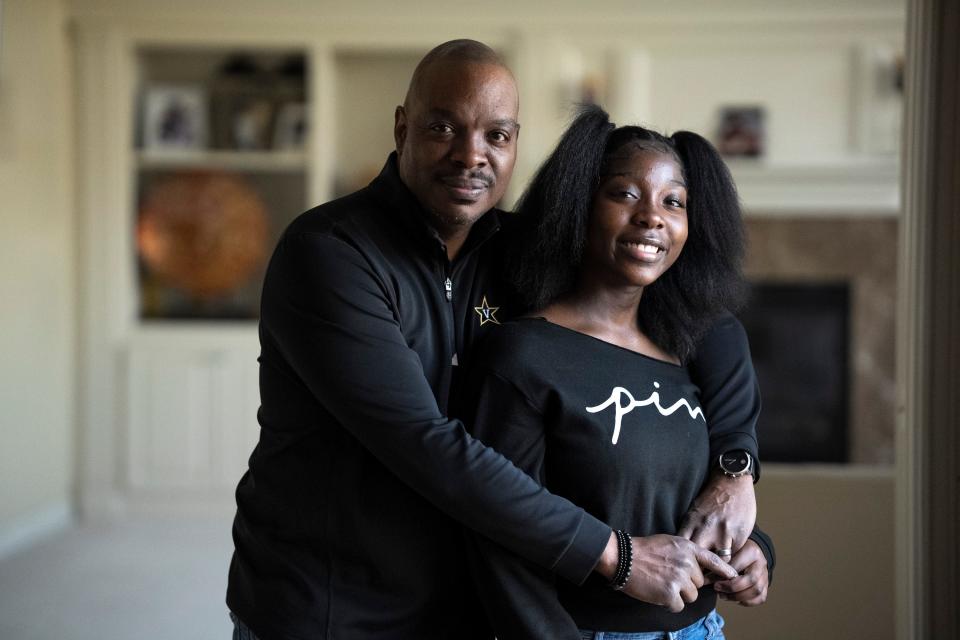Expert: What Black children aren't taught about police interactions can deepen wounds

Jewel Woods is the founder and clinical director of Male Behavioral Health and the Center For Men & Boys.
The brutal slaying of Tyre Nichols by Black police officers in Memphis, Tennessee highlighted a basic requirement that many Black parents eventually face: the complex decision on when and what to teach our children about law enforcement.
More:Family of Donovan Lewis calls for faster action in Columbus in wake of Tyre Nichols' death
Black parents have long history of preparing Black children to deal with the institutional betrayal trauma that results from negative interactions with police.
We now have the additional burden of preparing Black children to deal with the cultural betrayal trauma that results from when Black police officers are involved with killing Black people.
Opinion:'Kia Boys' tragedy cuts much deeper than idea of deviant kids
For Black fathers, the lessons we teach our children about the police typically range from general themes on how to remain safe during interactions with the police, to explicit codes of conduct.
"I tell my children to not panic, comply and do not resist," One Columbus Black father told me. "Do not move until the officers tells you to move.”
The Talk
Like many, Al Edmondson, a community activist and the father of two boys, refers to the instructions he gives his sons as "The Talk."
“It is important for every Black man to have an honest and open conversation with their sons and daughters about the police,” Al said.
As a result, Al’s “The Talk” includes an entire list of instructions and explanations that touch on a variety of areas including:
The role of the police.
The importance of following rules.
How to interact with the police.
Addressing bias and discrimination.

When you listen to Black fathers talk about the lessons that they seek to instill in their children about how to interact with the police it becomes apparent that their teachings have nothing to do with lessons about social justice or law and order.
Rather, Black fathers are almost exclusively focused on teaching their children how to survive their interactions with police.
“It's not based on justice. It's not based on right or wrong. It's based on you getting safely out of that event, no matter whose fault it was police was racist or whatever. I don't care," a Black father of four sons told me. "My instructions to you is (that) you do what is necessary to make that situation as least volatile as possible.”
What Black parents don't teach Black kids about the police
The singular focus on safety and survival also belies what many Black parents don’t teach Black children about the police.
Black parents don’t teach Black children about the life-long feelings of humiliation and shame that can result from racist and abusive interactions with the police.
Black parents also don’t teach their children about the profound sense of helplessness that can be experienced in their interactions with the police.
It was a profound sense of guilt and helplessness that many witnesses talked about on the witness stand during the trial of George Floyd's murder Derek Chauvin.
The pervasive feeling of fear and helplessness that Black people experience even during routine interactions with the police can’t be underestimated.
A Black father had a telling answer when I asked how he feels when he is driving and notices that a police car is behind him.
"I feel like a gazelle with a cheetah behind me," he told me. "The sad (thing) is I have a good driving record.”
In Black and White | Jewel Woods works to improve mental health of Black males
The Black community is consistently reminded of the physical threat the police pose to Black bodies and Black lives whenever the murder of an unarmed black person is captured in the news.
That said, the impact of discriminatory and abusive interactions with police on the mental health of Black children and Black adults can not be underestimated.
The impact of that shame and humiliation
Not only does research demonstrate that anxiety and depression rates spike in Black communities immediately after the police killing of unarmed black men by police but it shows that major discriminatory events involving police as one of the main contributors to suicide in the Black community.
While anger, rage, and/or outrage are often the main emotions the media associates with Black community and their experiences with the police, other emotions like humiliation, shame, guilt and powerlessness are often experienced as well.
Black parents know that police are the main entity in American society that can take away their freedom and their lives.
It therefore makes sense that Black fathers would focus on teaching their children strategies to remain safe and to survive police interactions.
The rising rates of suicide and mental health issues among Black youth also makes it necessary that we teach our children about the internal wounds that Black people suffer from in our interactions with the police — regardless of whether the police are white or Black.
There is no Black Dr. Spock or "Green Book" for Black parents to teach Black children how to successfully navigate all police interactions safely.
We have to be willing to share our own personal stories and hope that these stories protect our children just as much as telling them to always keep your hands in plain site where the police can see them.
We all know that Black lives matter, but we have to teach our children that their internal lives matter as well.
Jewel Woods is the founder and clinical director of Male Behavioral Health and the Center For Men & Boys. His publications have been featured in both academic publications and popular new media including Essence Magazine, Psychology Today, Ebony Magazine, Ms. Magazine, the Huffington Post, the Dallas Morning News, the Cleveland Plain Dealer, and the Philadelphia Inquirer.
This article originally appeared on The Columbus Dispatch: Jewel Woods: How should Black parents talk to Black kids about police interactions?

